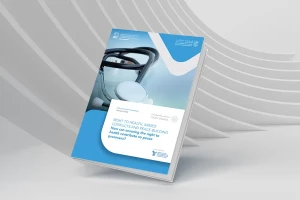
The panel featured an array of distinguished speakers, each bringing a wealth of expertise and insight to the discussion. These included most notably Mr. Immanuel Azaad Moonesar, Professor of Health Policy and Systems Research Mohammed Bin Rashid School of Government; Dr Umesh Palwankar, Executive Director Geneva Centre for Human Rights Advancement and Global Dialogue; Ms. Clare Dalton, Head of Delegation, International Committee of the Red Cross; Mr. Giuseppe Saba, CEO, International Humanitarian City, Dubai; and Dr Khulood Alsayegh, Head of Health Policies and Regulation, Dubai Health Authority.
Interlinkages between armed conflicts, health, and peace are well known. Violence and armed conflicts have devastating implications for health. Health is always under attack. The proliferation of attacks on health and healthcare workers are obviously unacceptable under international human rights and humanitarian law.
These conference offered the perfect setting to delve into the integration of healthcare into peace processes and conflict resolution, highlighting the essential role of health and medical sector professionals. The discussion further emphasized the significant contribution of women in health services towards successful peace processes. From the fruitful expert discussion emerged three potential intervention avenues for health as a bridge for peace programs, namely delivering health services in conflict zones, providing a neutral platform to collaborate on health issues, and offering mental health and rehabilitation services to aid reconciliation in conflict-affected communities. The emerging reflections and recommendations have been incapsulated in a comprehensive report made publicly available, thereby contributing further to the discourse on healthcare’s role in peacebuilding.
Access the pdf version of this publication.
Year of publication: 2024